Moringa powder, renowned for its nutritional benefits, requires proper care to maintain its freshness and potency. Let’s delve into the best practices for storing this superfood to ensure it retains its quality.
Introduction to Moringa Powder
Moringa powder, derived from the leaves of the Moringa oleifera tree, boasts an array of vitamins, minerals, and antioxidants, making it a valuable addition to a healthy diet.
Table of Contents
Importance of Storing Moringa Powder
Storing Moringa powder properly is crucial to preserve its nutritional potency and extend its shelf life. This superfood contains an abundance of essential nutrients, including vitamins, minerals, antioxidants, and amino acids. When exposed to certain environmental factors, these valuable compounds can deteriorate, diminishing the powder’s effectiveness.
Factors like light, air, moisture, and temperature play pivotal roles in the degradation of Moringa powder. Exposure to light and air can cause oxidation, leading to nutrient loss. High humidity levels can result in clumping and spoilage, affecting both taste and quality. Fluctuations in temperature can further accelerate this process, compromising the powder’s freshness.
By storing Moringa powder in airtight, opaque containers away from direct sunlight, you shield it from light and air exposure, preserving its nutritional value. Optimal storage conditions involve keeping it in a cool, dry place to maintain its potency over time. Additionally, ensuring the container is clean and dry before storing the powder prevents contamination and extends its shelf life.
Ultimately, proper storage practices are essential to retain the full spectrum of benefits that Moringa powder offers. By taking care in how it’s stored, you ensure that each spoonful continues to provide the enriching nutrients that contribute to your overall health and vitality.
Factors Affecting Moringa Powder’s Freshness
- Light and Air Exposure: Both light and air play detrimental roles in the degradation of Moringa powder. When exposed to light and air, the antioxidants and nutrients within the powder are prone to oxidation. This process leads to a reduction in its nutritional potency over time. Storing Moringa powder in transparent containers or in areas with excessive light exposure can hasten this degradation.
- Moisture and Humidity: High humidity levels pose a risk to the quality of Moringa powder. The powder tends to absorb moisture, causing it to clump and deteriorate. This not only alters its texture but also impacts its freshness and shelf life. Keeping the powder in a dry environment is essential to prevent moisture-related spoilage.
- Temperature Fluctuations: Drastic changes in temperature, particularly exposure to heat, can accelerate the spoilage of Moringa powder. Fluctuations in temperature can cause condensation inside the container, which compromises the powder’s freshness and nutritional content.
To maintain the freshness and maximize the shelf life of Moringa powder, it’s crucial to store it properly. This includes utilizing opaque, airtight containers that shield the powder from light and air. Additionally, storing it in cool, dry areas away from direct sunlight and extreme temperature changes can significantly prolong its freshness and preserve its nutritional benefits.

Best Practices for Storing Moringa Powder
Choosing the right container, such as an airtight, opaque jar, is essential. Store it in a cool, dry place, like a pantry, away from moisture and sunlight.
Step-by-Step Guide to Storing Moringa Powder
- Container Selection: Choose a container that’s both airtight and opaque. Airtight containers prevent air from seeping in, preserving the powder’s freshness, while opaque containers shield it from light exposure. Opt for glass or dark-colored containers as they effectively prevent oxidation, thus maintaining the potency of the powder’s nutrients.
- Storage Conditions: Select an appropriate storage area—a cool, dry place away from direct sunlight is optimal. Fluctuations in temperature and exposure to sunlight can accelerate the degradation of Moringa powder. Therefore, storing it in a consistent environment with low humidity levels, such as pantries or cupboards, helps retain its freshness and nutritional content.
- Contamination Prevention: Prioritize a clean and dry container before storing the powder. Any moisture or residue in the container can lead to spoilage. Seal the container tightly after each use to prevent exposure to air and moisture, preserving the powder’s quality.
By adopting these best practices, you ensure that your Moringa powder remains potent and fresh, allowing you to harness its full nutritional benefits with each use.
How Long Can Moringa Powder Last?
The shelf life of Moringa powder can vary based on storage conditions and the quality of the powder itself. When stored properly in an airtight container, away from light, moisture, and excessive heat, Moringa powder can typically retain its potency for up to one to two years. However, factors like exposure to air, light, humidity, and temperature fluctuations can shorten its shelf life.
It’s essential to check for signs of spoilage, such as a change in color, odor, or taste, to ensure the powder is still fresh. Generally, fresher Moringa powder tends to have a vibrant green color and a mild, earthy scent. Regularly assessing its quality can help determine its usability and freshness for consumption.
Signs of Spoiled Moringa Powder
- Color Alteration: Fresh Moringa powder usually exhibits a vibrant green color. Spoiled powder may undergo discoloration, turning brownish or dull. This change hints at a loss of freshness and potential nutrient degradation.
- Odor Changes: Fresh Moringa powder has a mild, earthy aroma. Spoiled powder might emit a rancid or unpleasant smell, indicating decomposition or contamination.
- Texture and Moisture: Spoiled Moringa powder may clump together or feel damp. Clumping or any hint of moisture suggests exposure to humidity, compromising its quality and shelf life.
- Unpleasant Taste: While fresh Moringa powder has a mild, pleasant taste, spoiled powder can develop bitterness, sourness, or an off-putting flavor. A change in taste indicates potential spoilage.
- Presence of Mold or Unusual Texture: Visibly spotting mold growth or noticing an abnormal texture like stickiness or grittiness indicates spoilage and potential contamination.
Regularly inspecting Moringa powder for these signs is crucial to ensure its quality and safety for consumption. If any of these indicators are noticed, it’s best to refrain from using the powder to avoid consuming compromised or spoiled product.
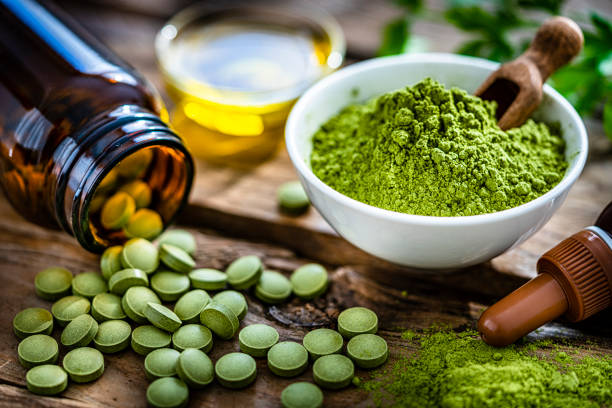
Benefits of Fresh Moringa Powder
- Rich Nutritional Profile: It contains a bounty of essential nutrients such as vitamins (A, C, E, K), minerals (calcium, potassium, iron), and protein, contributing to overall health and vitality.
- Immune System Support: High levels of vitamin C bolster the immune system, helping the body ward off infections and illnesses. Additionally, its antioxidant content aids in reducing oxidative stress.
- Enhanced Energy Levels: The iron content in Moringa powder assists in combating fatigue and improving energy levels, making it beneficial for individuals with iron deficiency.
- Digestive Health: Rich in fiber, Moringa powder aids digestion, promotes bowel regularity, and supports a healthy gut microbiome, potentially reducing digestive issues.
- Blood Sugar Regulation: Compounds found in Moringa may help regulate blood sugar levels, offering potential benefits for individuals managing diabetes.
- Anti-inflammatory and Antioxidant Properties: Its potent anti-inflammatory and antioxidant properties may alleviate inflammation and oxidative stress, reducing the risk of chronic diseases and supporting overall health.
- Skin and Hair Nourishment: Antioxidants present in Moringa powder contribute to healthy skin and hair by combating free radicals and promoting collagen production, aiding in maintaining youthful skin and strong hair.
- Heart Health: Some studies suggest that Moringa may help lower cholesterol levels and reduce the risk of heart disease, supporting cardiovascular health.
- Weight Management Aid: The combination of fiber and nutrients in Moringa powder may help in weight management by promoting satiety and supporting metabolism.
- Potent Antioxidants: Its rich antioxidant content neutralizes free radicals, potentially reducing the risk of chronic diseases and supporting overall health and longevity.
Regular incorporation of fresh Moringa powder into one’s diet can provide a diverse range of health benefits, contributing to a balanced and thriving lifestyle.
Using Stale Moringa Powder
- Nutritional Loss: Stale Moringa powder may have undergone degradation, resulting in a loss of potency and reduced nutritional content. This could impact the powder’s effectiveness in delivering health benefits.
- Altered Taste and Aroma: Stale Moringa powder might develop an off taste or odor due to exposure to air, moisture, or prolonged storage. This change in taste and aroma can affect its palatability.
- Decreased Effectiveness: The potency of antioxidants and other beneficial compounds in stale Moringa powder might diminish, potentially reducing its effectiveness in supporting various health aspects.
- Potential Contamination: Stale powder might be prone to contamination, especially if not stored properly. This could pose health risks and make it unsuitable for consumption.
- Limited Usefulness: Stale Moringa powder might not yield the desired health benefits that fresh and properly stored powder provides, potentially impacting its usefulness in recipes or health routines.
In summary, using stale Moringa powder may lead to reduced efficacy and potential risks. It’s advisable to regularly check the quality of Moringa powder and ensure proper storage to maintain its freshness and maximize its benefits. If the powder has gone stale, it’s safer to avoid using it and opt for fresh stock to reap the full advantages of this nutritional powerhouse.
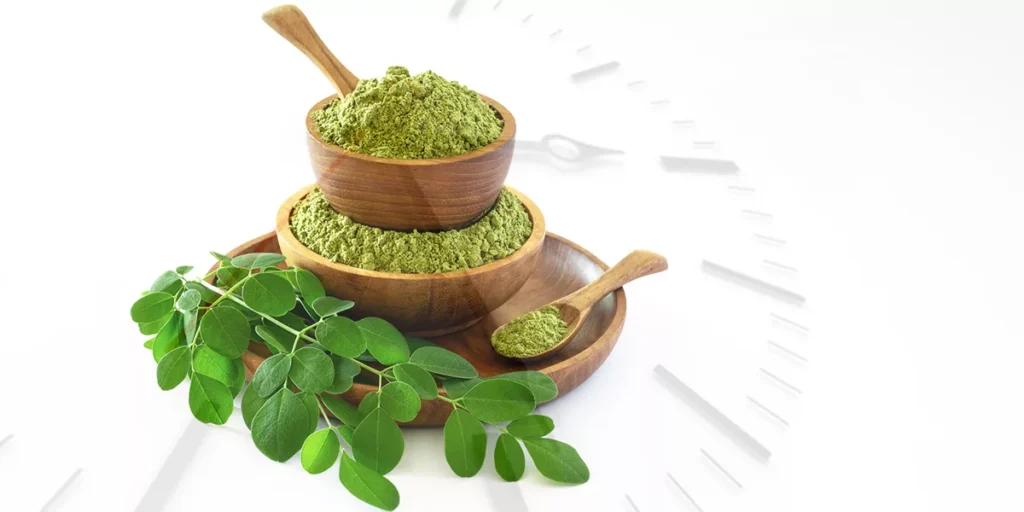
Conclusion
Proper storage of Moringa powder is pivotal in maintaining its nutritional potency and ensuring it remains a valuable dietary supplement.
Source to Get Organic Moringa Leaf Powder Capsules
| Moringa Leaf Powder Capsules |
| Organic Moringa Leaf Powder Capsules |
| Best Moringa Leaf Powder Capsules |
| High-quality Moringa Powder Capsules |
| Affordable Moringa Powder Capsules |
FAQs
- Can I store Moringa powder in the refrigerator?Refrigeration can introduce moisture, affecting the powder’s quality. It’s best stored in a cool, dry place.
- Should I grind Moringa leaves at home or buy pre-made powder?Both options work, but ensure proper storage regardless of the source to maintain freshness.
- Can I use Moringa powder past its expiration date?While it may not be as potent, it can still be used for culinary purposes if it shows no signs of spoilage.
- Is sunlight harmful to Moringa powder?Yes, UV rays can degrade its nutrients. Store it away from direct sunlight.
- Can I store Moringa powder in plastic containers?Plastic containers should be airtight and opaque to minimize air and light exposure.





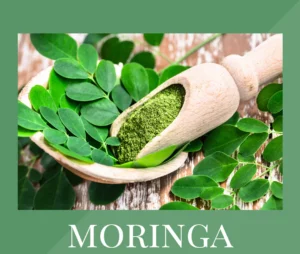
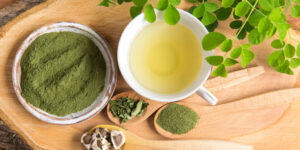
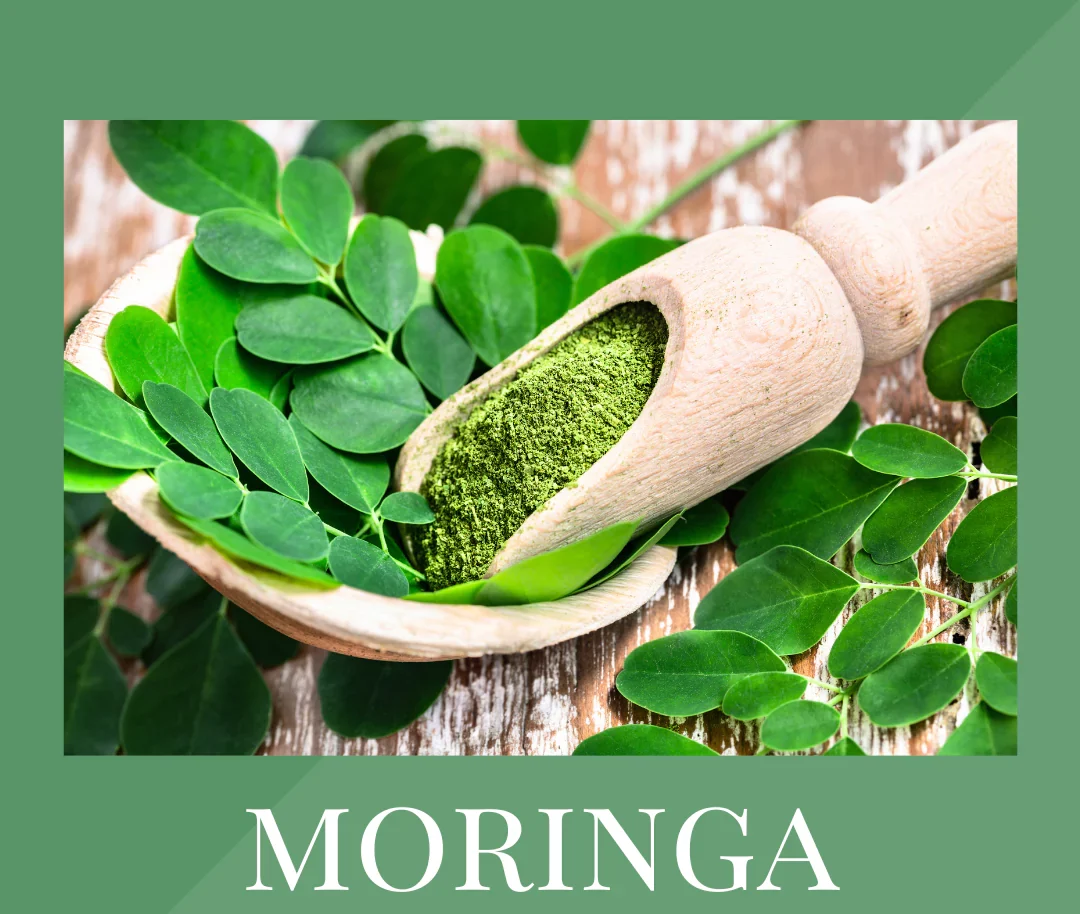
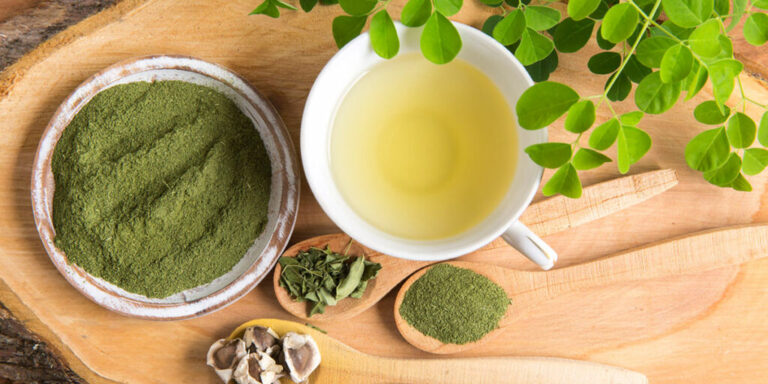
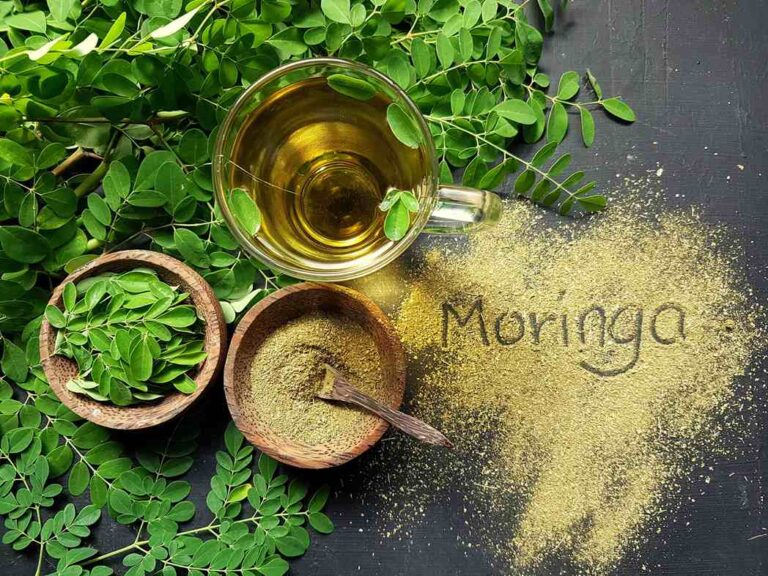



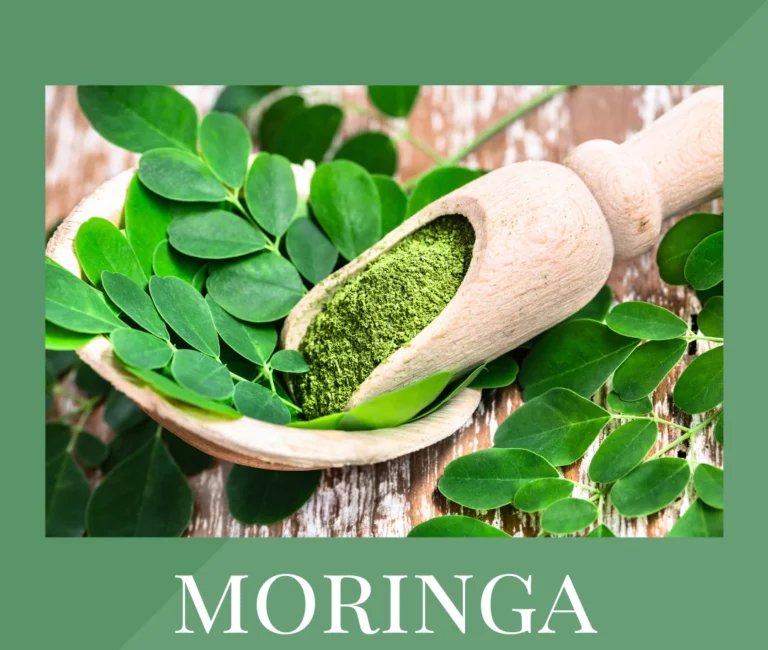
+ There are no comments
Add yours